Holocaust Studies at GVSU
Courses Offered
For Current Courses, please click here.
HNR 231: The Holocaust (Fall and Winter)
PLS 240: the Holocaust (Annually)
HNR 331: Culture and the Holocaust (Annually)
Eng 360: Holocaust Memoirs (Winter 2009, Fall 2009, Winter 2014)
Eng 380: Literature of the Holocaust (Fall 2012)
Eng 605: American Literature and the Holocaust (Fall 2005, Winter 2011, Winter 2015)
HNR 311: Remembering the Holocaust: Museums, Memorials, Sites (Spring 2006, Spring 2012, Spring 2015)
HNR 311: Hollywood and the Holocaust (Winter 2014, Fall 2014)
Fall 2014 Courses
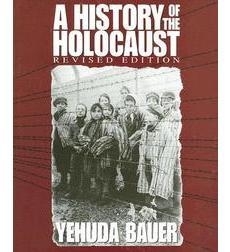
HNR 231, 01: SWS The Holocaust, Fall 2014
Requirements Fulfilled: Social Science
Jason Crouthamel, Professor
Robert Franciosi, Professor
SPECIAL EVENTS
In conjunction with an October lecture by Professor Jan Gross of Princeton University, the class read his important book, Neighbors, and also attended his campus presentation.
Students who completed either HNR231 or 331are eligible to enroll in the Spring 2015 course, “Remembering the Holocaust,” which will include travel to Germany and Poland.
[1419724155].jpg)
ENG. 360 Studies in Nonfiction: Holocaust Memoirs, Fall 2014
Texts:
Charlotte Delbo, Auschwitz & After (Trans. Lamont)
Primo Levi, Survival in Auschwitz (Trade Ed.,)
Barbara Rylko-Bauer, Polish Doctor in the Nazi Camps
Art Spiegelman, Maus (Set: Maus I/Maus II)
Wladyslaw Szpilman, Pianist
Eli Wiesel, Night (with new preface)
[1419724174].jpg)
HST 400 01, The Holocaust, Fall 2014
Requirements Fulfilled: Social Science
Jason Crouthamel, Professor
Texts:
Doris Bergen, War & Genocide
Tadeusz Borowski, This Way for Gas, Ladies & Gentlemen (Trans, Vedder)
Mary Fulbrook, Small Town Near Auschwitz
Robert Gellately, Backing Hitler
Jan Gross, Neighbors
Marion Kaplan, Between Dignity & Despair
David Clay Large, And the World Closed Its Doors
Primo Levi, Drowned & Saved
Peter Novick, Holocaust in American Life
Special Programs
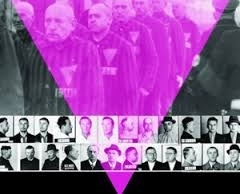
Nazi Persecution of Homosexuals: 1933-1945 - special exhibit loaned to GVSU by the U.S. Holocaust Memorial Museum
Paragraph 175 was the German statute prohibiting homosexuality between men. Enacted in 1871 following the unification of the German Empire, its enforcement was sporadic prior to 1933, particularly in urban areas. In 1935, Nazi jurists undertook an extensive overhaul of the German criminal code. Paragraph 175 was re-written to broaden the law’s scope of “indecencies between men” from a narrow interpretation of an intercourse-like act, to include virtually any contact between men deemed to have sexual intent, even “simple looking” or “simple touching.” For more information, please visit the U.S. Holocaust Memorial Museum site..
Between January 20 and February 18, 2015, this exhibit was hosted by a consortium of GVSU disciplines: Political Science, English, the Frederik Meijer Honors College, Brooks College of Interdisciplinary Studies, GVSU's LGBT Resource Center, the Office of Inclusion and Equity, and the LGBT Faculty/Staff Association. It was co-sponsored in part with financial support from the Joseph Stevens Freedom Endowment and the USHMM Lester Robbins and Sheila Johnson Robbins Traveling and Special Exhibitions Fund.
A number of special programs were offered during the exhibit's display at the Mary Idema Pew Library and Learning Commons. Among them:
"From Liberation to Persecution: Homosexuals in Weimar and Nazi Germany." Presented by Jason Crouthamel, Ph.D., GVSU History Department.
"Haunted by the Holocaust: A Reading and Lecture" presented by author Lev Raphael (Assault with a Deadly Lie, Journeys & Arrivals: On Being Gay and Jewish).
Film series sponsored in partnership with the LGBT Faculty/Staff Association and the Milton E. Ford LGBT Resource Center: Paragraph 175, Bent, The Out List, and The Iron Closet.
"Connecting Past and Present: Nazi Persecution of Homosexuals and its Relevancy in 2015." A panel arranged by Professor Ryan Bond.
Tova Friedman, Holocaust Survivor
In January 2105, WGVU-TV presented a special film screening and discussion of Surviving Auschwitz: Children of the Shoah, an award winning WGVU documentary. Based upon the book by the same name by West Michigan author Milton Nieuwsma, Surviving Auschwitz follows survivors Tova Friedman and Frieda Tenenbaum as they relive the memories of their incarceration and liberation from Auschwitz. Friedman and Tenenbaum were two of the youngest of 7,000 prisoners found alive during the liberation of Auschwitz by a division of the Soviet army. Tova was just six years old when she was released.
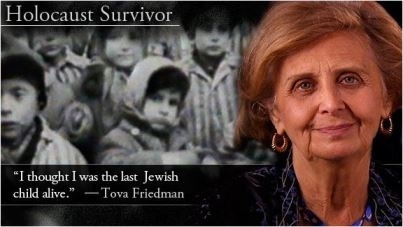
At the age of 77, Tova travels frequently sharing the story of those who perished in the Holocaust. She stresses the importance of standing up for one another and the oneness of human kind. Tova was born on September 10, 1938 yet considers January 27, the day Auschwitz was liberated, to be her birthday. Today, Tova and her family live in New Jersey. She recently retired as the executive director of Jewish Family Service of Somerset, Hunterdon, and Warren Counties with over 20 years' experience providing psychotherapy services. Tova has four children and five grandchildren.
Read the interview with Tova Friedman by GVSU Lanthorn staff member, Sarah Hillenbrand.
Jan T. Gross
Professor of History, Jan T. Gross, is the Norman B. Tomlinson ‘16 and ‘48 Professor of War and Society at Princeton University. He presented the keynote address at the October 2014 Great Lakes History Conference hosted by GVSU: "On the Periphery of the Holocaust: Pillage and Killings of Jews." The theme of the 2014 Conference was "Why Does it Happen? Complicity and Resistance of Genocide in World History." Gross joined the Princeton History Department in 2003 after teaching at New York University, Emory, Yale, and universities in Paris, Vienna, and Krakow.
Professor Gross studies modern Europe, focusing on comparative politics, totalitarian and authoritarian regimes, Soviet and East European politics, and the Holocaust. After growing up in Poland and attending Warsaw University, he immigrated to the United States in 1969 and earned a Ph.D. in sociology from Yale University (1975). The author of several books, his most controversial, Neighbors (2001), is widely read and taught in Poland and the United States. A finalist for the National Book Award, Neighbors reconstructs the events that took place in July 1941 in the small Polish town of Jedwabne, where virtually every one of the town’s 1,600 Jewish residents was killed in a single day.
Using eyewitness testimony, Professor Gross demonstrates that the Jews of Jedwabne were murdered by their Polish neighbors, not by the German occupiers, as previously assumed. The shocking story occasioned an unprecedented reevaluation of Jewish-Polish relations during World War II and touched off passionate debate. In 2004 many of the Polish voices in this debate were published in translation in a collection, The Neighbors Respond. Professor Gross is the author of several books, the co-editor of The Politics of Retribution in Europe: World War II and Its Aftermath (2000), and the co-editor with Irena Grudzinska-Gross of War Through Children’s Eyes (1981), which uses school compositions and other documents written by children to study how children experience war and deportation.
Annette Insdorf, Columbia University
In March, 2014, Grand Valley State University commemorated the fiftieth anniversary of Sidney Lumet’s ground-breaking drama with a special screening of The Pawnbroker and a lecture by film historian Annette Insdorf of Columbia University.
Based on Edward Lewis Wallant’s 1961 novel, The Pawnbroker (1964) is the story of Sol Nazerman, a concentration camp survivor whose traumatic memories are often triggered by the desperate people who come to his Harlem pawn shop. Starring Rod Steiger in an Academy-Award-nominated performance, The Pawnbroker is the first Hollywood film to examine the Holocaust from a survivor’s perspective.
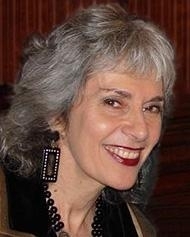
The author of Indelible Shadows: Film and the Holocaust, which remains the foundational text in the field, Annette Insdorf has also written books on Francois Truffaut, Polish cinema, and most recently a study of Philip Kaufman. Her wide-ranging work includes television appearances, audio commentary on DVDs, jury work at important film festivals, and, since 1983, hosting “Reel Pieces” at Manhattan's 92nd Street Y, a program which has attracted such guests as Martin Scorsese, Meryl Streep, Daniel Day-Lewis, Pedro Almodovar, Woody Allen, and Al Pacino.

Jeffrey Shandler
Professor Jeffrey Shandler presented two lectures in February 2013: "The December Dilemma: Christmas in American Jewish Popular Culture" and "The Holocaust on American Television."
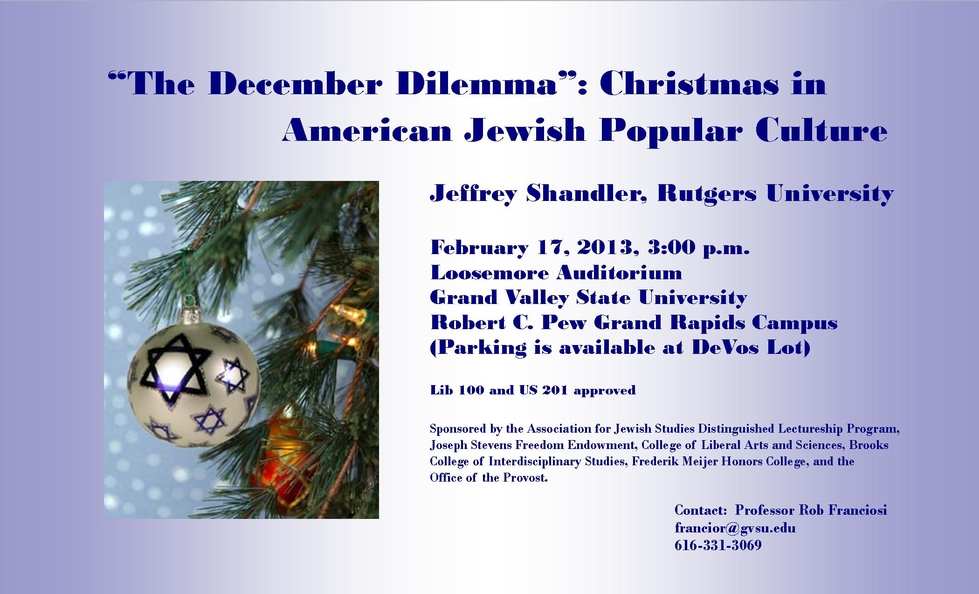
Currently president of the Association for Jewish Studies, professor Shandler is the author or editor of numerous books including, most recently, Anne Frank Unbound: Media, Imagination, Memory (Indiana University Press, 2012), Jews, God, and Videotape: Religion and Media in America (New York University Press, 2009), and Adventures in Yiddishland: Postvernacular Language and Culture (University of California Press, 2005).
The office of the Provost and the Association for Jewish Studies Distinguished Lectureship Program were co-sponsors of Professor Shandler's presentations.
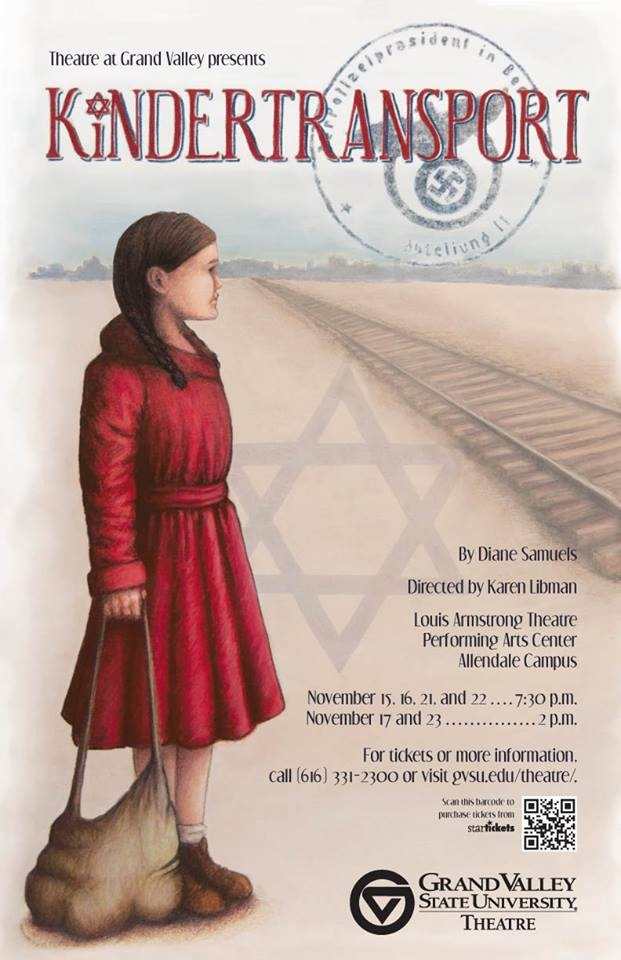
In the last months of World War II, 10,000 Jewish children were voluntarily sent by their parents to the United Kingdom to escape the certain death of Nazi concentration camps. They came from Germany, Austria, Czechoslovakia, and Poland. Most never saw their parents again. The play, Kindertransport, written by Linda Samuels and directed by GVSU professor of theatre, Karen Libman, was presented on campus in November 2013. It celebrates the heroic strength of the human spirit. “[Kindertransport] has something worthwhile to say, and does so with honesty. You won’t go away … empty-handed.” –The New York Times
In conjunction with the presentation of Kindertransport, John Rosen, a man who survived World War II because he left Germany as a child in 1939 on the Kindertransport, spoke to students, faculty and the public about his experiences as a child during the war and later in England and the United States.
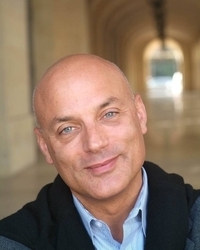
Daniel Mendelsohn
Award-winning writer, critic and translator Daniel Mendelsohn presented “Medea on the Jersey Shore: Tragedy and the Crisis of Reality in Contemporary Culture,” in September 2012 as one of six events during Grand Valley’s popular Fall Arts Celebration.
In 2012, Mendelsohn was elected into the American Academy of Arts and Sciences as part of a class that included Secretary of State Hillary Rodham Clinton, actor Clint Eastwood, and Amazon.com founder Jeff Bezos. Mendelsohn, the Charles Ranlett Flint Professor of Humanities at Bard College, studied Classics at the University of Virginia and Princeton University, where he completed his doctorate in 1994. Since then his articles, essays, reviews, and translations have appeared frequently in such diverse publications as The New York Times, The New York Review of Books, Esquire, Travel + Leisure, and The Paris Review.
A recipient of the National Book Critics Circle Award for Excellence in Reviewing (2001) and the George Jean Nathan Prize for Drama Criticism (2002), Mendelsohn has written six books, including an award-winning account of his search for the truth about six relatives who perished in the Holocaust, The Lost: A Search for Six of Six Million. A collection of essays, How Beautiful It Is And How Easily It Can Be Broken, was a Publisher’s Weekly Best Book of 2008. Waiting for the Barbarians, a new collection of Mendelsohn’s essays on subjects ranging from Susan Sontag and Noël Coward, to TV’s Mad Men and Greek myth in Spider-Man, was published in October 2012.
The Diary of Anne Frank
The Grand Rapids Civic Theater presented The Diary of Anne Frank in a newly adapted version in January 2011. In a series of four interviews with WGVU radio, Robert Franciosi, Professor of English at GVSU, provided the history of the genesis and development of the play as portions of Anne's diary, not previously released to the public, were made available for study. Anne's development as a young woman and the tensions experienced by the families while in hiding become more evident when reading the full diary.
Below is an excerpt describing the play as adapted by American playwright, Wendy Kesselman, from a January 9, 2011 article in the Grand Rapids Press by Lorilee Craker. The full article is available here.
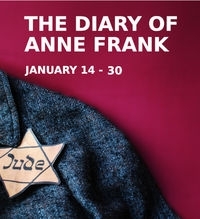
"Originally written by Frances Goodrich and Albert Hackett in 1955, Civic’s performance of the play will incorporate adaptations made in 1997 by Wendy Kesselman, an American playwright who has written more than a dozen plays.
'What I love about this version is that it goes back into the excerpts of the diary; this version watches history at the moment it unfurls,' Tinker [Bruce Tinker, CT Executive Director] said. 'It has a lot of immediacy.'
Kesselman’s adaptation also weaves in more information about the other inhabitants (of the annex), including Miep Gies, played in this production by WGVU’s Shelly Irwin. It runs less than two hours.
'There are a lot of scenes where she seems like a normal girl,' Benson [actress Mary Rose Benson] said. 'She teaches everyone that we are not alone, that we all have someone to relate to. Anne Frank felt the same way we do.'”
Peter Hayes
Professor Peter Hayes, a prominent Holocaust expert, visited Grand Valley State in 2010 to deliver several lectures on the Holocaust. His topic was "The Holocaust: Myths and Misconceptions." Hayes is a professor of history and German, a Theodore Zev Weiss Holocaust Educational Foundation Professor of Holocaust Studies, a Charles Deering McCormick Professor of Teaching Excellence, and chair of the Department of History at Northwestern University, where he has taught since 1980. Professor Hayes holds degrees from Bowdoin College, the University of Oxford, and Yale University. He is the author or editor of nine books — including the prize-winning titles, Industry and Ideology: IG Farben in the Nazi Era and Lessons and Legacies: The Meaning of the Holocaust in a Changing World, From Cooperation to Complicity: Degussa in the Third Reich, and The Oxford Handbook of Holocaust Studies . See more at: More at GVSU's website.
Peter Hayes
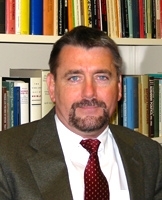
Lev Raphael
Michigan writer, Lev Raphael, is the author of twenty-four books in nearly a dozen different genres. Raphael is best known as a pioneer in writing fiction and creative non-fiction about the children of Holocaust survivors, which he has been publishing since 1978. His books have been translated into a several languages and he has done hundreds of invited talks and readings on three continents. His work has appeared in dozens of anthologies in the U.S. and England. (Huffington Post) His books include Dancing on Tisha B'Av, Winter Eyes, The German Money, Secret Anniversaries of the Heart, and Writing a Jewish Life. The former host of Book Talk on Lansing Public Radio and the author of the Nick Hoffman mysteries series, Lev spoke on campus in 2006. His topic was "Ashes to Hope: Writing the Second Generation."
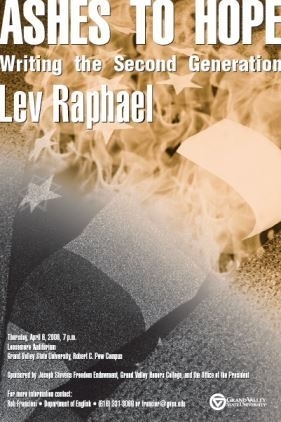
[1407242022].jpg)
Susan Gubar
Susan Gubar, Distinguished Professor of English at Indiana University, presented "The Long and the Short of Holocaust Poetry" and "A Feminism of One's Own." The programs were presented in 2004 by the GVSU Honors College, Arts and Humanities Division, the Women's Center, and Women and Gender Studies.
In November of 2008, three days after she was diagnosed with advanced ovarian cancer, Susan Gubar underwent a debulking operation. The procedure entails the removal of part of the cancer—and often several of the organs that are in contact with it—and, as Gubar writes in her new book, Memoir of a Debulked Woman, it’s the standard initial response to the disease. “Have you ever heard of a debulked woman? Have you ever seen one?” she writes. “I am one such living, breathing, debulked woman, though no one ever explained to me how such a being comes about, what such a condition means, or how it would feel" (The New Yorker).
Barbara Zelizer
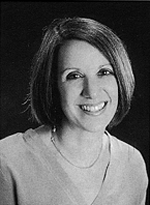
Barbie Zelizer, the Raymond Williams Professor of communication at the Annenberg School for Communication, University of Pennsylvania, presented “Trauma Through the Camera’s Eye” at GVSU in 2003..
A noted authority on journalism, popular culture, and the media, Zelizer is the author of Remembering to Forget: Holocaust Memory Through the Camera’s Eye, which won the 2000 Best Book Award from the International Communication Association as well as other national awards. Zelizer shows how the powerful photographs of liberated concentration camps not only became the basis for public perception of the Holocaust, but also helped legitimize the camera as a tool of journalism. In Journalism After September 11, published in 2002, Zelizer co-edited writings by scholars and media commentators examining how the attacks transformed the nature of journalism, and what journalism looks like today.

